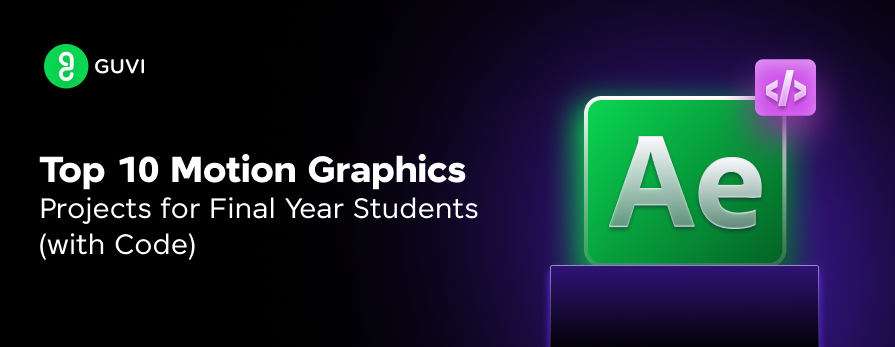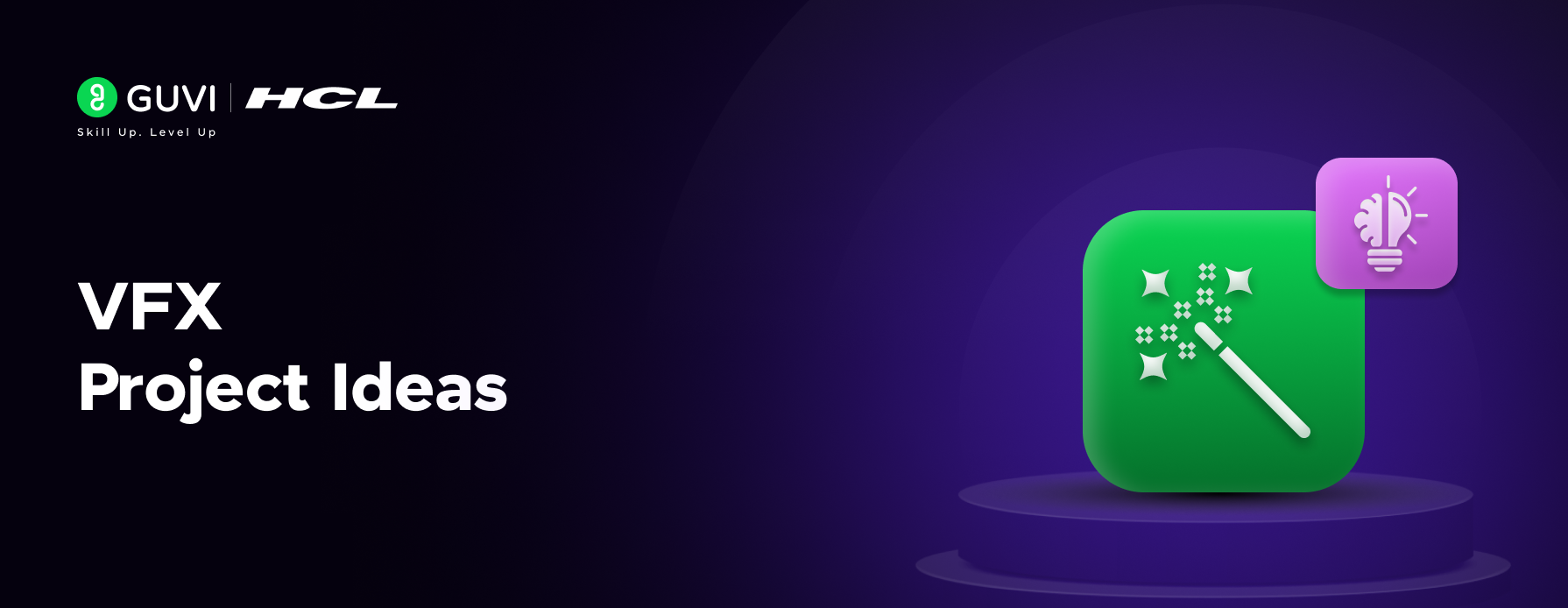
7 Best Game Development Project Ideas for Aspiring Game Designers
Apr 21, 2025 4 Min Read 25912 Views
(Last Updated)
Learning game development is an adventure that combines creativity with technology, offering endless possibilities that captivate and engage. For those at the beginning of this journey, understanding game design and development is important. This blog is for aspiring game designers, providing a few project ideas that range from simple to complex, ensuring a practical learning experience.
Game development is an art form that requires a blend of storytelling, graphic design, sound engineering, and programming. The best way to learn? Through doing. Hands-on projects are key to developing your skills and showcasing your talent.
We’ll learn what game development involves before getting into the project ideas for various skill levels. From puzzles to platformers, these projects are designed to challenge you and foster growth, turning theoretical knowledge into practical expertise. Ready to start your game development adventure? Let’s go!
Table of contents
- What is Game Development?
- Game Development Project Ideas for Aspiring Game Designers
- Classic Game Clone
- Platformer Game
- Puzzle Game
- Adventure Game
- Mobile Game
- Multiplayer Game (Local or Online)
- Augmented Reality (AR) Game
- Conclusion
- FAQs
- How do I choose the right game development project to start with?
- Can working on these game projects help me get a job in the game industry?
- How important is it to keep up with industry trends while working on game development projects?
What is Game Development?
Game development is the creative and technical process of creating video games. It involves a combination of art, programming, design, sound production, and storytelling. This multidisciplinary field requires teams to brainstorm ideas, design gameplay mechanics, develop and code the game, create visual and audio assets, test for bugs, and finally, release the game to the public.
It’s a complex process that combines technology and creativity to bring immersive experiences to players around the world.
Also Read: Game Development Career 2025: The Ultimate Beginners Guide
Game Development Project Ideas for Aspiring Game Designers
Working on game development projects is an excellent way for aspiring game designers to learn and polish their skills. Here’s a rundown of various project ideas on game development and what they entail:
1. Classic Game Clone
Creating a clone of a classic game, such as Tetris or Pong, is an excellent starting point for aspiring game designers. This project focuses on understanding the foundational elements of game development, including the basics of programming, game design principles, and the important concept of game loops.
By recreating these iconic games, designers learn how to implement core mechanics, control game states, and process player inputs, all while keeping the gameplay engaging and responsive.
Also Read: Best Product-Based Companies for Game Developers in 2025
Purpose: Learn the basics of game mechanics and development by recreating a beloved classic game like Tetris or Pong.
Skills Covered:
- Programming fundamentals
- Simple game design principles
- Understanding game loops

2. Platformer Game
Developing a platformer game offers an in-depth exploration into level design, character control mechanics, and the implementation of physics and collision detection. This type of project challenges designers to create a series of engaging levels that players can navigate through by running, jumping, and avoiding obstacles.
Through this project, aspiring game designers gain skills in designing compelling gameplay loops, environmental storytelling, and the technical aspects of game physics.
If you’re looking to master game design, GUVI’s Game Development using JavaScript Course is the perfect next step. It covers everything from the basics of game loops to intricate environmental storytelling and the physics behind games.
Also Read: The 12 Best Games to Learn Coding in 2025
Purpose: Learning level design and character control mechanics.
Skills Covered:
- Implementing physics
- Handling collision detection
- Crafting engaging-level designs
- Creating character animations

3. Puzzle Game
Designing a puzzle game is an exercise in logic, problem-solving, and game balance. This type of project puts the designer’s creativity to the test, challenging them to create puzzles that are engaging, yet not too difficult to solve. Designers learn to refine game mechanics and user interfaces to make the gameplay intuitive and rewarding.
For those looking to learn game development and refine their skills in creating compelling, balanced games, exploring a comprehensive course can be incredibly beneficial. Learn how to bring your game development projects to life with a structured approach by checking out GUVI’s Full Stack Development Course.
This project enhances skills in puzzle design, UI/UX design, and player psychology, providing a comprehensive understanding of how to craft games that challenge the mind in entertaining ways.
Also Read: Top 5 Reasons to Choose Python for Game Development
Purpose: Develop logic, problem-solving skills, and an understanding of how to balance gameplay.
Skills Covered:
- Designing puzzles
- Refining game mechanics
- Designing intuitive user interfaces.

4. Adventure Game
Creating an adventure game allows designers to learn storytelling, world-building, and branching narrative paths. This project is about crafting a rich narrative experience, where players make choices that influence the story’s outcome. Designers learn to develop complex characters, intricate plots, and immersive environments that draw players into the game’s world.
Adventure games offer a unique opportunity to blend narrative and gameplay, requiring designers to think about how story elements can be integrated with puzzles and exploration.
Also Read: Top 10 Python Frameworks for Game Development
Purpose: Explore in-depth storytelling, world-building, and how to integrate branching narrative paths.
Skills Covered:
- Developing narratives
- Creating assets
- Implementing dialogue systems.

5. Mobile Game
Developing a mobile game focuses on the specific challenges and opportunities of mobile platforms, including touch controls and monetization strategies. This project requires designers to consider mobile gameplay, such as designing for smaller screens, optimizing performance, and integrating touch-based controls.
Mobile games often need to be engaging in short bursts, accommodating the on-the-go nature of mobile gaming. This project offers valuable insights into the mobile gaming market, user engagement strategies, and the technical aspects of mobile development, including cross-platform compatibility and optimization.
Purpose: Grasp the nuances of developing for mobile platforms, focusing on touch controls and monetization.
Skills Covered:
- Handling touch input
- Optimizing for mobile devices
- Integrating in-app purchases.
Must Explore: 5 Mobile Apps with the Best UI/UX Design in 2025

6. Multiplayer Game (Local or Online)
Creating a multiplayer game, whether local or online, introduces the complexities of networking and real-time gameplay synchronization. This project challenges designers to think about game mechanics from a multiplayer perspective, ensuring fairness, balance, and fun for all participants.
Learning how to manage game state across different devices, handle network latency, and design for cooperative or competitive play are key aspects of this project.
This experience is important for understanding the technical and design challenges inherent in multiplayer game development, preparing designers for a field that increasingly values social and connected gaming experiences.
Purpose: Address the complexities of networking and managing real-time multiplayer gameplay.
Skills Covered:
- Networking fundamentals
- Synchronizing game states
- Designing multiplayer-centric experiences.

7. Augmented Reality (AR) Game
Experimenting with Augmented Reality technology in game design offers a unique opportunity to blend the digital and physical worlds, creating immersive experiences that extend beyond the screen. This project requires designers to think spatially, considering how digital objects interact with the real world and how players move and interact within that space.
This project pushes the boundaries of traditional game design, requiring a deep understanding of user interaction, interface design, and the technical aspects of AR development.
Purpose: Experiment with AR technology to create games that offer immersive real-world interactions.
Skills Covered:
- Utilizing AR toolkits
- Developing spatial awareness
- Designing engaging user interactions in augmented spaces.
Also Read: Top 10 Programming Languages For Game Development

Conclusion
The path to becoming a successful game designer is filled with endless possibilities and learning opportunities. Embrace the challenges, get creative, and remember that every project you work on is a step forward in your game development journey.
Let your passion for games be the driving force behind your goals, and never underestimate the power of a well-crafted game to leave a lasting impact on its players. Here’s to your success in the exciting world of game development!
Also Read: Best Full-Stack Development Project Ideas in 2025
FAQs
Choosing the right project depends on your current skills, interests, and learning objectives. If you’re a beginner, starting with a classic game clone can help you grasp the basics of programming and game mechanics.
You can later move on to projects that challenge you in specific areas, like a platformer game to improve your level of design skills or a puzzle game to focus on logic and user interface design.
Absolutely. Building a portfolio of game projects demonstrates your practical skills to potential employers. Each project you complete showcases your ability to see a project through from concept to completion, your problem-solving skills, and your creativity.
Staying updated with industry trends is important in the rapidly evolving field of game development. It helps you understand the current market demands, emerging technologies, and new game design philosophies.























![Top 10 React Native Project Ideas [With Source Code] 10 React Native Project Ideas](https://www.guvi.in/blog/wp-content/uploads/2024/10/React_Project_Ideas.png)

![Top 9 AWS Projects for Beginners with Source Code [2025] 11 aws project](https://www.guvi.in/blog/wp-content/uploads/2025/07/aws-project.png)





very nice work